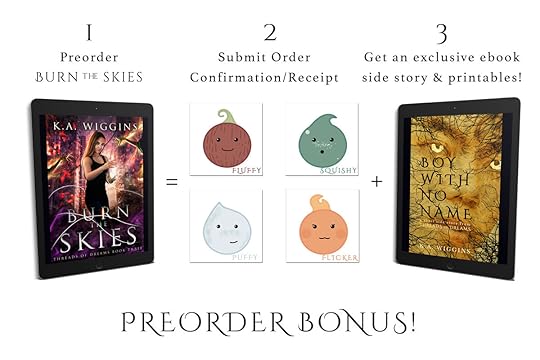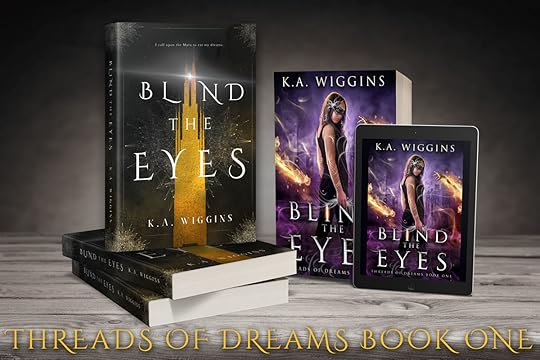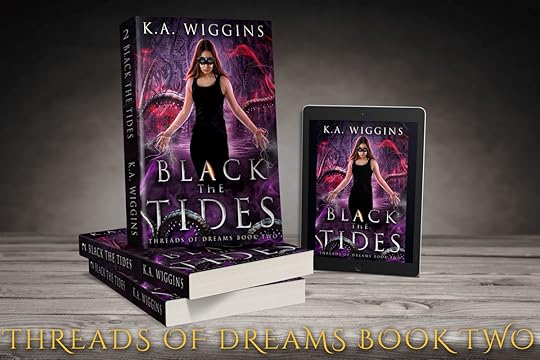K.A. Wiggins's Blog, page 8
July 9, 2021
Publishing Overview
These slides are from a series of workshops for young writers and present a rough and very broad overview of things to think about and possible next steps for emerging authors.

This might seem obvious (and it applies to all of publishing, not just short fiction), but it���s actually very important to really dig into what matters to you.
Are you building a long-term career? Do you dream of publishing full time? Do you care more about money or creative freedom or acclaim? Is it really more about getting your stories or ideas out to the world? Do you crave feedback? Is writing really a private pursuit that brings joy to you but that you don���t want the eyes (and opinions) of the world on? Is publishing a path to something else���recognition, acclaim, support for a different eductational or career trajectory?
Your answers may surprise you and/or change over time���which is fine! We all do the best we can and move forward as best we can, making mistakes along the way. But if you can clarify your goals (and dreams and hopes and . . . ) it���ll help you think critically about the information available and choose the most promising path for your needs.
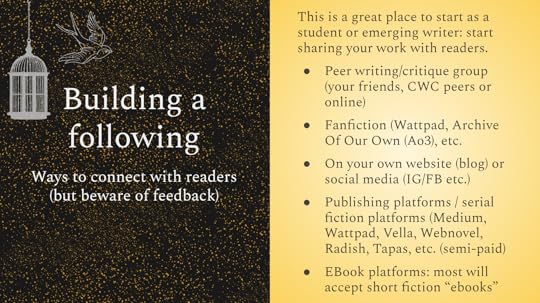
This is vital: if you want to get your work out into the world, that means working with others.
Young writers and newcomers may be used to a more critical perspective on ���literature��� (damage from high school/college lit classes, no doubt), or channel their insecurities into aggression, or simply lack the experience to recognize just what (and to what extent) they don���t yet know.
Time for a change of focus: other writers are now your peers. Not long-dead entities to be picked apart in analysis and critique. Not competitors (even when they are). Not faceless corporations. Real people who you may bump into from time to time, friends, colleagues, possibly even someone who will one day be in a position to help or hurt your career. Proceed accordingly.
Try to adjust your perspective on other emerging writers and readers as well; they���re now potential friends, colleagues, and fans. Be kind. Be helpful. Be professional. Don���t be scared.
You���ll need people who are on your side (or at least willing to lend a hand temporarily) at nearly every step of your writing journey. People who���ll share tips, give feedback (if you ask for it), buy books, write reviews, shout about your books to other readers.
If you intend to publish a book or otherwise care about getting your words out to readers, it���s never too early to start. Nothing published to share yet? Build platforms (website/social media, etc.) around shouting about books you like, ideally ones that are similar to what you hope to write. By the time you���re ready to search for readers, you���ll have contacts who you can share the news with!
And consider starting with something smaller and less resource intensive than a book, especially if you���re a student. Short stories, fanfiction, and serial fiction are a few ways to get your words in front of readers with less pressure. Bite-sized content is a growing market and it���s more doable for you, especially if you���re balancing creating with a busy school or work schedule.
See other posts in the Resources section for links to short fiction and serial fiction markets.
At time of writing, Wattpad and Archive Of Our Own (AO3) are the biggest fanfiction platforms. Use filters to keep content kid-friendly if you���re underage or simply uninterested in the thriving adult content sections. ;)
Quick aside: ALWAYS read the contracts before sharing your work and make sure your rights are protected. More on that in a bit.
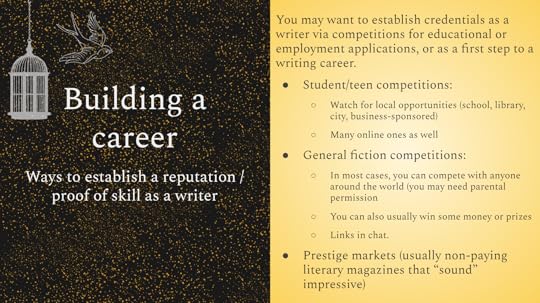
This section was originally intended for students, but writers of all ages can get into sharing their words for reputational purposes.
Students may find it helpful in scholarship, college, or job applications. Adults may simply want the prestige, or use it as a (small) building block to a writing career.
Awards and accolades don���t sell lots of books. They can be useful in building a ���brand��� as a writer; however, and may lead to more opportunities or visibility over time.
Larger scale or higher profile awards or story markets can be more beneficial, but the competition will be higher. That���s not to say don���t enter���always take your shot! But local/regional and student-specific competitions/markets will be relatively easier to make a splash in. Also note that certain topics or styles will play better with some judging panels or editors/magazines than others. The closer you match their preferences, the more likely you are to get a ���yes��� and that has nothing to do with skill or quality. (Don���t get discouraged!)
While publishing as a teen may sound promising, it tends to be less of a selling point than you might think. Unless you���re entering a student competition or otherwise required to disclose such details, avoid mentioning your age/grade.
See other posts in the Resources section for links to competition and short fiction markets. ALWAYS read contracts and follow posted guidelines.
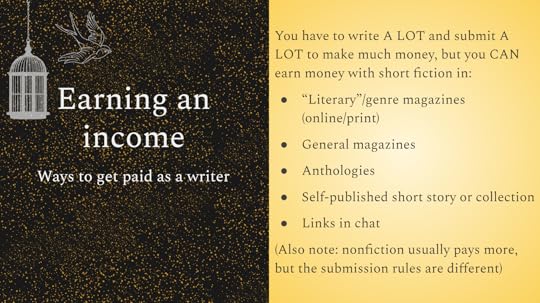
###
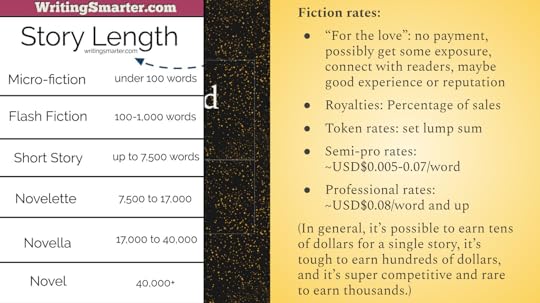
###
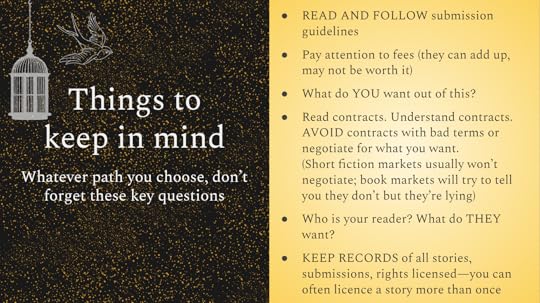
###
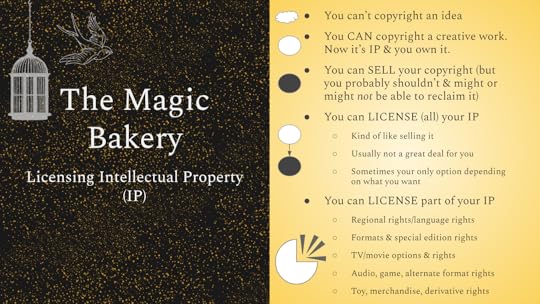
###
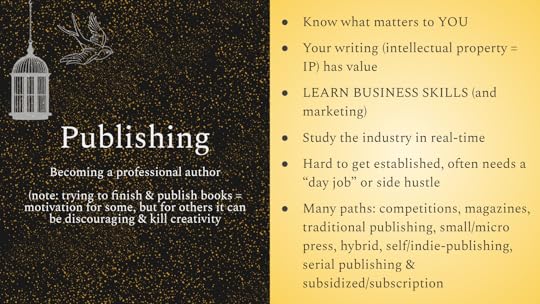
###

###

###
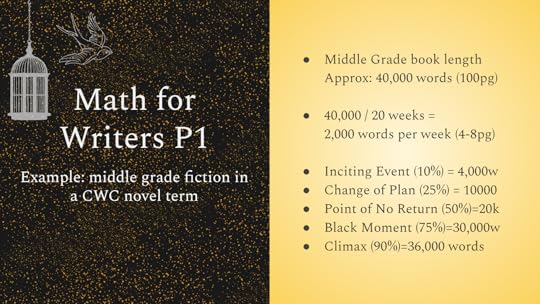
###
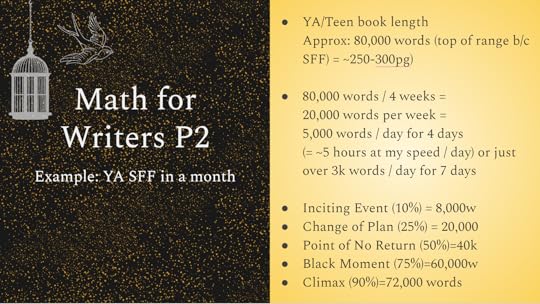
###

###
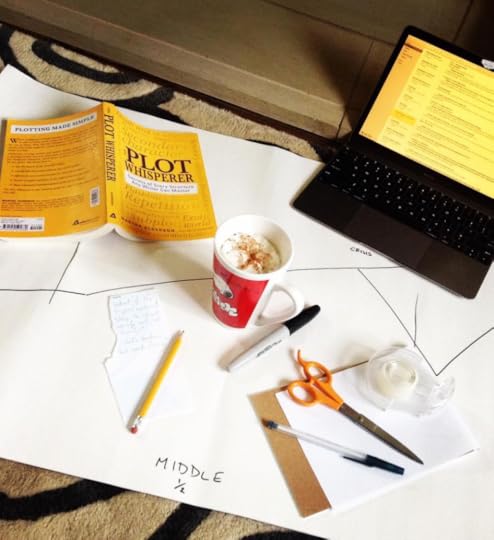
###
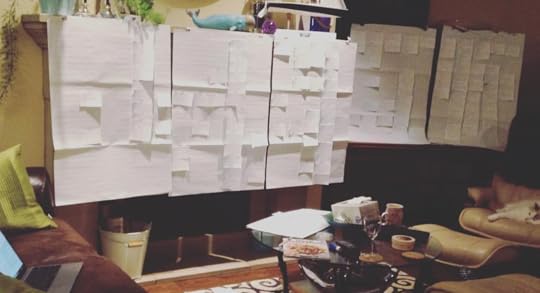
###
[image error]
###
[image error]
###
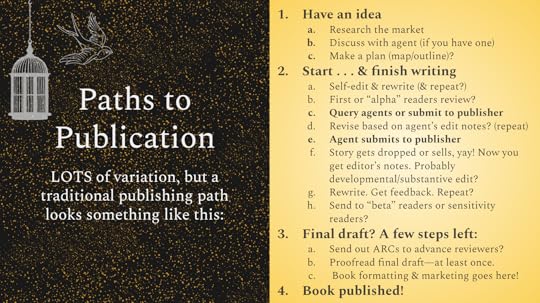
###

###
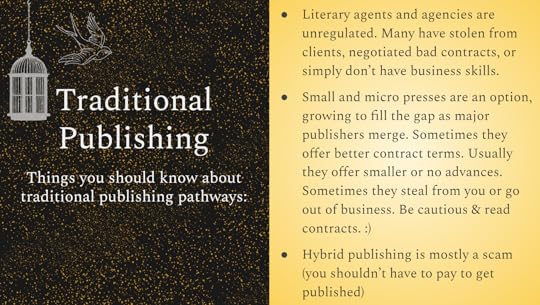
###
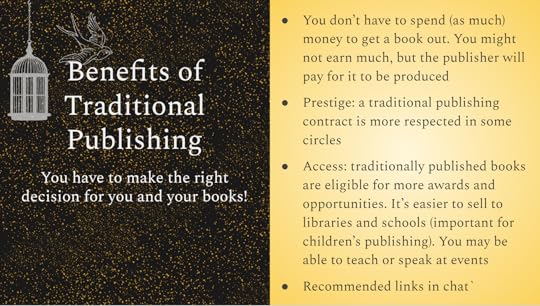
###
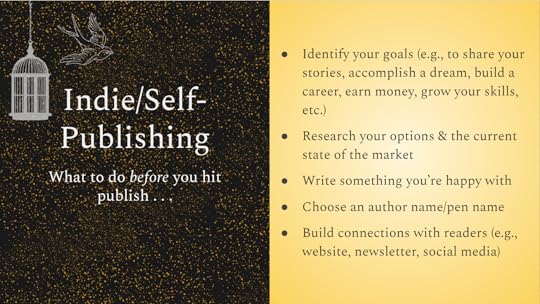
###
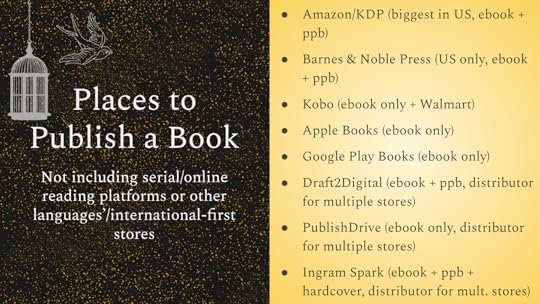
###
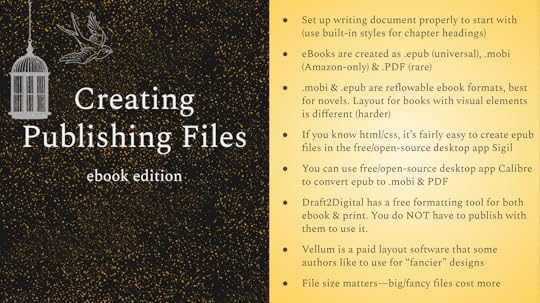
###
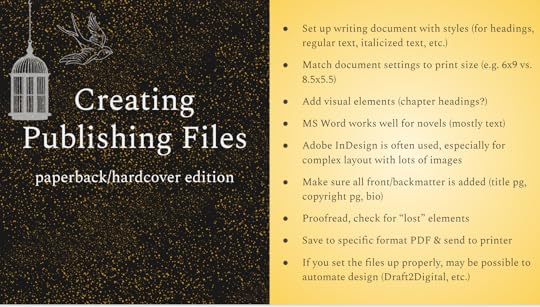
###
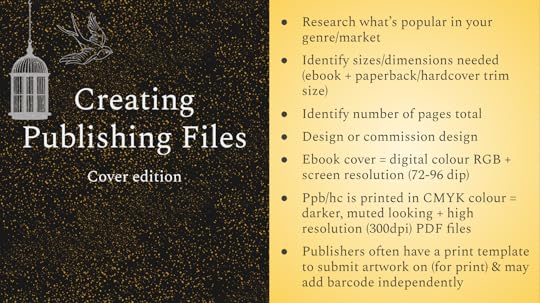
###
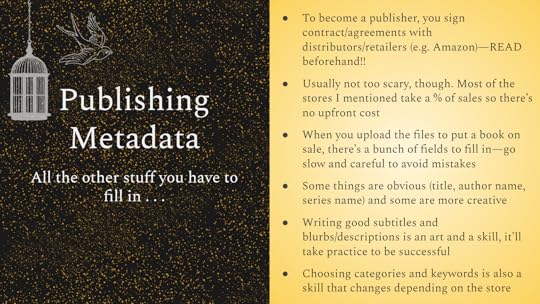
###
July 8, 2021
Indie Publishing
Disclaimer: many free resources are provided in hopes that you���ll invest in a product (workshop, book, mentorship program, etc.) Don���t invest in anything until you understand it well enough to know if you���re getting a good deal.

If your research tells you the traditional publishing route isn���t for you, you need to actually write a book before you can get it out there on your own. The good news is that technology has made pretty much everything you need more accessible than ever before. The bad news is that you���ve got a huge learning curve ahead. You need to figure out how to write a good book, make it book shaped, get it out to the world, and then keep people interested in it. You may (probably will) need a budget for production costs like cover design, too, if you���re not committed to a completely DIY approach. It���s a journey, it���ll take time, and you���ll make mistakes. But it���s also a strong option in the current market and a way to get your words out to the world and establish a career for yourself.

Just a shortlist of options. The top 5 are Amazon, Kobo, Barnes & Noble, Apple, and Google. Distributors can help you get your book out to even more markets and make it easier to get started and coordinate (you set up a book once instead of 5+ times on different sites) but offer less control and flexibility. Most take a portion of royalties in payment (no upfront cost).

The main thing is to get your text set up properly using built-in styles (heading, body text) and page breaks. You can use free software or online setup wizards like Draft2Digital���s. The DIY approach is better for creating small file sizes (important if the retailer applies fees by size) but can be tedious.

Starting from the same file you compile an ebook from, you can update the built-in styles to change font, size, etc., set document settings to match the desired dimensions (most books are not 8.5x11���!) and add layout or visual elements. Professional books have a number of distinctive features: alternating margins (wider on the side the page is bound), kerning (spaces between letters, also spacing between words and lines) to ensure smoothly readible text, widow/orphan control to make sure the text isn���t split awkwardly across lines or pages.
Microsoft Word works just fine for this, as long as you don���t have complex visual layout like a photo book or text layout. Professional designers may use Adobe InDesign. I haven���t tested Google Documents, but it���d probably work fine as well. You���ll need to export to PDF for the printer.

Cover design is a balancing act between fitting in and standing out. You want to send the message that your book is like other books the reader likes, while standing out just enough that they pick yours up out of the crowd. You can learn cover design, but it���s another whole learning curve, and a poor cover may hurt your book���s chances.
Derek Murphy shares some cover design resources here. Canva is a good free resource for very simple designs and may work well for certain genres.

The last piece in compiling a book is the metadata. This stuff can have a big impact on how well your book reaches readers, and each element should be considered (and tested) to get the best result.
July 7, 2021
Traditional Publishing

Determined to get a book-shaped story out into the world? Here���s a rough outline of what it might look like.
As we���ll look at, traditional publishing is often slower with lots of waiting between steps, and possibly more drafts and rewrites. Agents are not essential but we all act like they are, and it���s unlikely that you can get a manuscript in front of a major publisher without one.
If you choose to independently pubish (self-publish), you don���t have to do every one of these steps, but you do need to either learn to do or learn enough to hire someone to do most of them. And in both cases, your job does not end when that book hits store shelves.

Most of this boils down to: it���s slow, there are no guarantees, and you���ve got to look out for yourself. The traditional publishing landscape has been getting worse for authors over the years, but do your research and make the best choice for you and your book. Things may change.

Agents (and publishers) have been known to steal from authors. That said, there are some very well intentioned people out there. As always, do your research and be intentional in your choices. Small and micro presses often offer better contract terms. They may still steal from you or go out of business. Proceed with caution, and watch out for ���hybrid��� publishers.
In traditional publishing, all money (should) flow to the author. If you���re paying for anything, something���s wrong. Don���t pay ���reading fees��� to agents or publishers, that���s a scam. If you have to pay to get the book out there, that���s independent publishing with a services company (���hybrid publisher���), not a real publisher. If that���s something you want, just be careful with the contracts and don���t sign away licenses without getting compensated.

Despite the evidence, it���s not all downsides! Book advances have gone down, but you at least get something, rather then spending your money to get published. There is still some prestige to ���being published,��� particularly by a major publisher. It can open doors. You���ll be eligible for more awards and speaking opportunities (whether you have a chance or want them is a separate question.) If you write for children (babies through to teens, in the publishing world), traditional publishers may be able to get your book out more widely���to public libraries and schools, for instance.
June 30, 2021
Groups Worth Joining
Facebook turns out to be an unexpectedly essential hotspot of groups for writers. Here are some worth your time:
Indie Author Support 20 Books to 50K Wide for the WinYou���ll also find groups for every interest, purpose, or subset thereof (age range, genre, marketing topic, etc.)
June 29, 2021
Preorder Bonus
It���s just SEVEN DAYS to Burn the Skies launch day, so I guess I better hurry up and tell you about the preorder bonuses!
All eBook preorders of Burn the Skies (on any storefront) OR library requests are eligible for a FREE digital bonus pack. ����
It includes a exclusive ebook special edition of Boy With No Name (the Ravel antihero side story formerly only available as part of The Devil You Know anthology), plus 6+ sheets of printables featuring adorable nature sprites (debuting in Burn the Skies, because this book needed a little cute-and-cuddly to balance out all the explosive tension!) for custom DIY magnetic bookmarks, stickers and more. ����
To get your bonuses:Preorder Burn the Skies on any storefront OR submit a new book request at your local library before launch day (July 7, 2021).
Screenshot or snap a pic of the order confirmation/receipt/library request.
Fill out this Google Form and submit your receipt. Your bonuses will be sent to the email you provide by the end of launch week!����
June 11, 2021
Advice for Teen Writers
Occasionally teens get assigned to interview an author as part of an English assignment or as part of a unit on future career prospects. Answers collected here for easy access:
June 2020:
1. What sort of postsecondary education (if any) or experience did you have and how did it help you become an author?I knew I wanted to be an author from about the eighth grade on, but everyone in my life insisted I needed a day job because I wouldn���t make any money. So I figured because I loved books, why not become an editor? (Not realizing that other careers in publishing are just as hard to get into and underpaid, lol.)
I was nearly finished with a Bachelor���s degree in English Language (grammar, history, linguistics���as opposed to Eng. Lit., which is more Shakespeare and novel studies) at UBC before I realized it would do absolutely nothing for my prospects as an editor OR as an author. In my opinion/experience, the major didn���t do a thing for me, but some of the things I did in random side classes were helpful (coding websites, using design software.) These days it���s hard to get by without any post-sec education, but in hindsight, I could easily have just gone to UFV and done any arts degree with the same results.
I also took a couple of term-length workshops through UBC extended studies focused on children���s publishing and editing and rewriting fiction in an attempt to snag an internship with Vancouver-based small press Tradewinds Books. Those actually were somewhat useful. It���s important to study your industry and take opportunities for focused continuing ed where you can get them. However, I got buried under finishing my degree and establishing a ���day job��� for several years, and by the time I was actually ready to publish, my intel was way out of date.
I worked part-time throughout university and was already established in marketing/communications for the Vancouver engineering industry by the time I had graduated, and worked for several years in that before finally returning to publishing. That ended up being fairly useful in terms of relevant experience (and launch funds). Understanding business, the basics of marketing, communications, social media, how to read a contract, etc. all give you an edge.
My recommendation to young writers is to get a two or four-year degree in something they���re interested in and might find useful. Business is a fantastic choice because if you become an author, you will be a small business owner. Marketing/communications are useful. Comp-sci or anything tech-related can come in handy.
You don���t need a creative writing or English degree, but if you���re set on it, there are worse things to do with your time. And you���ll need to have a plan for earning money, at least at the beginning. Few jobs are 100% secure these days, but jobs in the Arts are less reliable than most. There are authors out there making steady incomes (or, in some cases, exceptionally good incomes) but it���s usually something you have to build up to over the course of years. (Royalties can start to add up as you get more books out, as long as you don���t license to a publisher that lets it go out of print.)
2. What does a day in the life of an author look like? How often do you write?I don���t subscribe to the ���must write every day��� camp of authors, so my schedule varies depending on the current project. I also work best when I don���t have to multi-task and switch gears that often, so I try to set aside time in batches to work on writing, instead of putting in an hour a day or whatever.
I teach weekly creative writing workshops during the school year (and camps, in the summer). If I���m in the middle of one or preparing for the next camp, I���ll spend time writing feedback, providing copyedits, preparing presentations, or developing curriculum. On a standard week during the school year, that���s 1-2 days on marking and prep, plus a half-day on the actual workshop.
I also freelance as a business marketing and communications consultant, though I try not to let it eat up too much of my time. So I may lose a few hours a week to writing or rewriting corporate content or sorting out a client���s tech woes.
I���m on the board of the Children���s Writers and Illustrators of BC Society, (currently Treasurer, nominated as President come July) so that���s another hour or two a week responding to requests. (But membership societies are worth the effort from a career opportunity perspective���definitely join one when you get the chance!)
Then there are the not-writing parts of being an author. I send a newsletter every second week, spend a couple hours on social media a week, several hours on things like emails, paperwork, accounts, and research, and a few hours on advertising. I do a lot of things myself, from creating graphics to bookkeeping to coding my website, so it all takes time. Submissions and queries (when I���m working with a publisher) also sit in this huge general ���administration��� pool. All sorts of random occasional stuff like book formatting, updating book listings, sharing review copies, etc. also fits here.
As much of all that as possible gets pushed to the side for actual book production. You get faster as you go, so at this point, I���m spending about a month on planning/prep/research for any novel-length works, about a month on the first rough draft, another two weeks each on a markup and a rewrite pass, and then another week each (or less) for revisions/rewrites/final review. I���ll spend maybe four to six hours a day when I���m in book mode. (The rest of the time is for unavoidable chores from the previous lists.) And there are two weeks to a month���s break between each step to catch up on everything I ignored while I was writing.
For short fiction, I kind of just throw those together whenever a rare slow day crops up.
So to sum it all up, I work from home and on my own a lot, which suits me. And I���m on the computer from maybe 8:30/9 in the morning to 7-9pm (with breaks to make meals) weekdays and maybe 6-8 hours/day on weekends. Depressingly, most of that time is spent on things other than the actual writing, lol. Again, writers are small business owners, so our experience is not that different from entrepreneurs!
3. How do you get inspiration for a book?This sounds a little (or a lot) loopy, but dreams are a big influence, actually. If I have a really entertaining lucid dream, I���ll often make some notes and come back to it. I also think about and do research on industry trends and the current market to try to pick something that may connect with readers. Other books, tv/movies, etc. often provide inspiration I���m unaware of until I look back and see the influence. Same thing with real life���in hindsight, I realized I���d used a lot of places and experiences for ���fantasy��� settings and situations, just with a twist. In general, I have no problem coming up with ideas, so it���s more a matter of weeding through all the options to find something I���m interested enough in and that has a strong chance of connecting with readers.
4. What is the process of publishing your books? Was it very difficult to get it published and how do you advertise your books?With my first book (Blind the Eyes), I was operating on out-of-date information and was aiming for a ���Big 5��� traditional publishing deal. (In the 2000s, YA books were selling in seven-figure deals, dystopian and paranormal subgenres were hot, and contracts hadn���t gone quite so sideways.) So I spent a couple years writing and then hired a developmental editor to help me get it in the best possible shape for publication. (Learned a lot about story structure and character development!) Then I started querying literary agents.
But by the time I started receiving ���full requests��� back (a positive result, signalling agent interest), I had started researching the current publishing industry and realizing that (a) I didn���t want to sign over my rights and was very done letting big businesses run my life (b) I might have the skills and resources to build my own career. I figured if agents thought my book would be worth money to them and to publishers, that was a promising sign that it could have value to me even without them.
So I hired a proofreader (it had already gone through a couple rounds of editing) and a cover designer, set up a bunch of promotions, and launched it independently. From a technical standpoint, there���s definitely a learning curve to this approach but it���s not all that difficult. And the way I did it, there���s also some cost, although the more skills you develop yourself, the lower that cost can be.
The last two books have followed the process I outlined below question 2: prep work with my developmental editor, rough draft, couple weeks to a month rest time to get some perspective, read through and markup notes for revisions, wait 1-2 weeks, actual rewrites, send to first readers, third revisions, send to proofreader, final clean-up edits, format, send ARCs, upload final ebook and print editions to storefronts. I have a rough timeline in mind, but I start setting hard dates and ramping up marketing around that third revision or when I send to proofreader.
And then short fiction is kind of its own thing. Contracts are much more favourable, so I do sell short fiction to traditional markets. I do a quick draft, often in one sitting, re-read and clean up, and then start submitting to magazines or anthology calls. Most of the time on short fic is spent on submissions (and endlessly waiting on responses���it can take months).
Advertising and marketing is a huge topic in and of itself, but in a nutshell there are ongoing/longterm efforts and then launch or special promo pushes. In general, I try to make sure my brand is strong and my books are visible as many places as possible. That means a website and listings on every industry site I can manage. Social media. Newsletter ���swaps��� with other authors. I build connections and maintain them through social and a regular newsletter. I do paid advertising on an ongoing basis (mostly Amazon ads) but in all honesty, I haven���t really cracked the code to sustainability on that front.
For new book launches or special sales, I schedule paid promotions through book deal newsletter services, maybe a small blog tour, sometimes a few days of Facebook ads, and then keep the Amazon ads running. It���s important to keep in mind that some books fit the market better than others and offer better return on investment. My books seem to do well with ongoing/traditional marketing efforts but not as great with paid advertising.
5. Is there anything you wish you would have known before you wrote/published your first book?Haha, so much. I���ve mentioned it a few times, but I thought I understood a lot about the industry when I was writing and moving toward publishing my first book. My information was out of date. This industry moves fast. Subgenres, tropes, markets, contract terms, formats, everything is in flux. So some decisions I made around the kind of book I thought I should create and what I could hope for in terms of a career were pretty off base.
I also wasn���t as comfortable with story structure and planning out novel-length (or series-length) stories as I could have/should have been. It made for a lot heavier rewrites on book one!
And I was hyper-sensitive about quality because I���d come from a corporate career and didn���t want indie publishing a sub-par book to reflect badly on me as a professional. In hindsight, I procrastinated, angsted, and focused too much on presentation when I should have been focusing on telling great stories and getting them out to readers.
That said, writing (and publishing) is also a very learn-by-doing skill. You try things, you learn, you adjust.
May 20, 2021
Sneak Peek and Series Wrap-Up Giveaway
That���s right, the epic finale to the celebrated Threads of Dreams series is finally (nearly) here! (Scroll to the end for a celebratory giveaway.)
In Blind the Eyes . . .Haunted 17-year-old shut-in Cole knows she���s missing out on something���maybe a whole lot of somethings���but she���s not quite sure if the cost of finding out is worth the risk of getting thrown to the eldritch horrors infesting her drowned city.
When a suspiciously charming stranger and his dangerously tempting offer drive her into a chance encounter with one of the monster-taken dead, she stumbles across a shocking and grisly conspiracy between the nightmares and the authorities.
Now she and her disembodied best-frenemy are on the run from enforcers, dreamjacking ghosts & soul-sucking monsters in a quest to expose the lies and take back their lives that takes them from the sterile authoritarian heights of Refuge to the glittering hedonistic underground club hidden beneath the floodwaters.
But Cole hasn���t yet uncovered the biggest secret of all���and it might just have something to do with the invisible threads that keep tangling around her fingers and the silver-lit boy from her dreams . . .
Can she take back her stolen-and-once-forgotten powers and expose the web of lies before she���s the next to die?
Find out in the 2020 Page Turner Awards Book Spotlight Prize-winning and Barnes & Noble Press ���20 Favorite Indie Books of 2018��� first book of the Threads of Dreams series.
In Black the Tides . . .Cole���s life has never been better. She���s reconciled with not-so-ghostly-after-all bestie Cadence, rescued dreamwalker and childhood friend Ash, and even managing to suppress (most of) her jealousy about their shared history���a past she still can���t remember. But it turns out being a city-saving hero is pretty cool, even if she hasn���t quite won the war yet.
That���s a problem she���s eager to solve. But when she dives back into battle with the nightmarish Mara too soon, her newfound powers fail to show up for the fight. Narrowly saved by a still-injured Ash, Cole is devastated. And determined to get her magic back, whatever the cost.
Ash has a plan. And she hates it. But when he kidnaps her, Cole has no choice but to brave sea monsters and the haunted wilds in a perilous journey through the monster-infested wilds.
Will she reach the dreamwalker homeland, recover her magic, and save her city before it���s too late for the friends she left behind?
Find out in the twisty, cinematic, and devastatingly cliff-hanger-serving second book of the series.
In Burn the Skies . . .There���s only so much betrayal a girl can take. But Cole has come way too far to give up now, even if she���s never been more powerless and the stakes have never been higher. The clock is ticking on not only the survival of her friends and the city she���s sacrificed so much to save but the survival of the world.
But disaster isn���t through with her yet. When her quest to muster a dreamwalker army founders, she���s left with one option: turn on the former friend and ally who betrayed her trust and stole her body. But she can���t bring herself to sacrifice the life of a delusional and homicidal child, not even to save all of humanity.
As her pool of friends and potential allies shrinks and resistance mounts, Cole pushes through grief and fear to find ever more desperate ways to fight back, holding back the monsters at the cost of her rapidly-draining life force.
Will her refusal to pay the ultimate cost end with her trapped in an eternal wasteland after everyone she���s ever cared about goes down in flames?
Find out in the breathless conclusion to the series, coming to a storefront near you on July 7, 2021.
Add on Goodreads Preorder Burn the SkiesThe official cover reveal isn���t until June 16, but here���s a sneak peek just for you:

Cover design credit on all three covers goes to the fantastic Christian Bentulan of CoversByChristian.com with modifications added.
Enter the GiveawayHere for the prizes? This giveaway launches May 31, 2021 and ends at 12:00 am PST July 31, 2021.
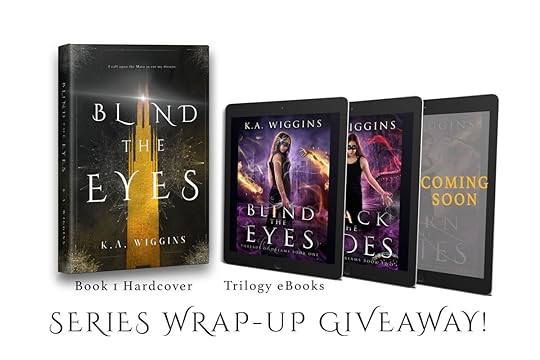
January 25, 2021
Feb3 WRAD Virtual Reading
Date: February 3, 2021
Time: 9am - 8pm PST
Location: your classroom, library, or book club via Zoom (or similar)
Type: Live Reading
World Read Aloud Day is a ���celebration of the power of reading aloud to create community, to amplify new stories, and to advocate for literacy as a foundational human right.���
As creators of books for young readers, many members of CWILL BC are offering free 10-20 min. virtual readings in support of this wonderful cause.
While I���m more than happy to present to classrooms, library groups or book clubs of all ages, my fiction currently targets ages 14+, so for elementary or middle school groups I will instead be reading from an age-appropriate Canadian children���s book that inspires me.
Shoot me a message at kaiewrites@gmail.com to book a free 10-20 minute reading + author visit on February 3, 2021!
Get Ready for IReadCanadian Day
View this post on InstagramA post shared by K.A. Wiggins | �������� Bookaholic (@kaie.space)
World Read Aloud Day is a ���celebration of the power of reading aloud to create community, to amplify new stories, and to advocate for literacy as a foundational human right.���
If you���re building your #IReadCanadian day TBR, my books qualify���and so do all of these. (Picture books up through YA!)
As creators of books for young readers, many members of CWILL BC are offering free 10-20 min. virtual readings in support of this wonderful cause.
While I���m more than happy to present to classrooms, library groups or book clubs of all ages, my fiction currently targets ages 14+, so for readings at elementary or middle school groups I can instead present an age-appropriate Canadian children���s book that inspires me.
Shoot me a message at kaiewrites@gmail.com to book a free 10-20 minute reading, workshop, or author visit on February 13 or the week of February17, 2021!
January 24, 2021
Feb17 I Read Canadian Day
Date: February 13 + week of February 17, 2021
Time: 9am - 8pm PST
Location: your classroom, library, or book club via Zoom (or similar)
Type: Live Reading
���I READ CANADIAN DAY is a national day of celebration of Canadian books for young people. This is a day dedicated to ���reading Canadian��� and will empower families, schools, libraries and organizations to host local activities and events within the week.���
As creators of books for young readers, many members of CWILL BC are offering free 10-20 min. virtual readings in support of this wonderful cause.
While I���m more than happy to present to classrooms, library groups or book clubs of all ages, my fiction currently targets ages 14+, so for elementary or middle school groups I will instead be reading from an age-appropriate Canadian children���s book that inspires me.
Shoot me a message at kaiewrites@gmail.com to book a free 10-20 minute reading, workshop, or author visit on February 13 or the week of February 17, 2021!

